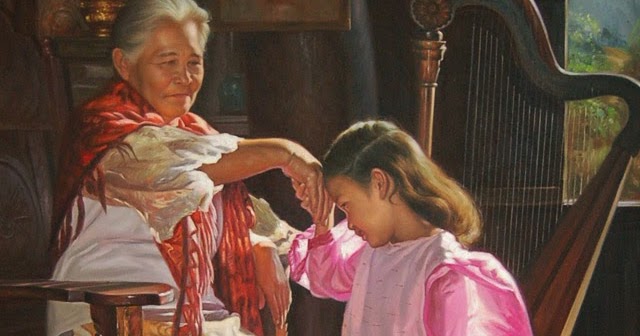Ate and Kuya? Family acceptance in the Philippines.
If you’ve visited the Philippines as part of an Australian Filipina relationship, no doubt someone has called you “kuya” or “ate” (pronounced like “ah-tay”) if you are a girl. You’ve probably asked about it and had it explained to you. But there’s a bit more to it, and it’s actually quite charming and reminiscent of old-Australia in some ways.
There are some societies that are fairly closed. I haven’t actually lived anywhere but Australia or Philippines, so I couldn’t tell you the intricacies of other countries for comparison as I can with Australian and Filipino societies. But I think we know instinctively that the Philippines is just that bit friendlier and more inclusive than many others where people are not valued quite as much as they are here.

Relating to each other – Philippines and also old-Australia
I sometimes find myself caught out a bit when I speak of Australia and Australians, and how “Aussies wouldn’t do this…….” about various things, but reality is that I can’t really speak for all sectors of Australian society in this day and age……particularly in relation to my own day and particularly my age! I’m 51 years old. Not what one would call “old”, but at the age where I find myself saying “in MY day…”, or where I tell my kids about something I did at their age and realise that it was 40 years ago! THEY think I’m old! Fortunately whilst growing old is compulsory, growing UP is still optional. I also lived in rural QLD for 18 years before moving here, and old-fashioned Aussie values are still alive and well in the bush. Long may this remain the case!
But the point I’m getting to (another sign of age!) is that “in MY day” kids used to refer to their elders as “Auntie” and “Uncle”, and never by their first name. Would have copped a clip behind the ear if you did otherwise! Here that will call each other “Ate” and “Kuya”, or sometimes “Tita” (auntie) or “Tito” (uncle), “Lola” (grandma) or “Lolo” (grandad) and a few other titles. Respectful titles, but there’s a bit more to it than that than just matters of respect. And I guess there was in Australia too, although probably not quite to the same extent as it is here. Please read on.
Philippines – One big family
“Exclusive” means to exclude. And there are traditions which exclude and separate us into “them” and “us”. Filipino society is far more inclusive, which means there’s a willingness to include and more of a desire to do so. And it doesn’t take most people very long to realise this on coming here. People are what matters. Most Filipino’s personal treasure consists of the family and friends that they love, far more than money. They feel happiest when surrounded by their nearest-and-dearest.
What made me think this the other day about the “kuya” and “ate” tradition was when a client said “Thank you, Kuya Jeff” to me when I complimented her on wedding pictures posted up on the “Philippines to Australia” Facebook group page. The message to me is “I’m your sister, and you’re my big brother!” Same thing happens when someone younger calls my wife “Ate Mila”. They respect her as an older sister, and she treats them with kindness and caring just the same as if she were biologically related.
I can still remember many years ago when we first settled here we actually had a client come and stay with us for a few days just before her flight to Australia. Don’t get any ideas! The Down Under Visa B&B isn’t open for business! It just worked out that way in this case, and it was fine. She was out all day…..came back….Mila said “Tess, you should go to bed now”. She responded with “Yes, Ate” and went to bed! I think she was about 27 at the time. This is Philippines, and that’s not so unusual here!
And I had a wonderful experience myself many years ago when I first came here in the 90’s. Yes, previous girlfriend. Steep learning curve! The issue was that her “Ninang” (godmother) and family basically took care of me as part of their family. She told me I was like a son to her, because of the relationship with previous-girlfriend. She and her family treated me then as one of their own, and to this day we’re still in contact. I’m “Ninong” (Godfather) to her 17th grandchild now, and so it goes on. Nice, isn’t it?
So yes, it’s a sign of respect most definitely. No kid here would ever call me “Jeff”. Most of them call me “Daddy” because it just worked out that way, but if they didn’t they would certainly find another respectful title for me. It says “I respect you”, but it also says “Please take care of me as you would one of your own”, and the right thing to do is to do just that in return. BE that big brother or that uncle to those who are younger than you. Be fatherly to kids and to teenagers. Let it bring out something good in you.
Use your judgement, of course. Not everyone here has the best of intentions. But let a few barriers down, and you find yourself feeling more a part of everything and less like a stranger. It’s certainly one of the better aspects of Filipino society. One of the problems in western societies is loneliness and feeling isolated. It doesn’t happen very much here!




Adding titles to peoples names as a “mark of respect” is stupid. How does adding a word like “Kuya” mean I respect you? Respect should come either way.
It’s an old tradition which enforces a hierarchy.
We are all equal.
Calling people “stupid” is not a mark of respect either, Frank.
Framk,
I think your attitude about a nice cultural trait is stupid. When I visited the PH, my girlfriend’s brother asked “Can I call you Kuya?” and it made me feel very welcome and like part of the family. It showed acceptance. More than that, it made me feel reciprocal acceptance and since then I have treated him like my own blood.
That’s the thing that struck me most about the people I met there, once you are accepted, you’re one of them. That’s a wonderful thing and I can’t see why it bothers you. What’s so wrong with a hierarchy? Are you that insecure that not being “equal” really bothers you so much? Man up, son.
It’s been a long while since anyone has called me “son”.
OK, I said:
“What made me think this the other day about the “kuya” and “ate” tradition was when a client said “Thank you, Kuya Jeff” to me when I complimented her on wedding pictures posted up on the “Philippines to Australia” Facebook group page. The message to me is “I’m your sister, and you’re my big brother!” Same thing happens when someone younger calls my wife “Ate Mila”. They respect her as an older sister, and she treats them with kindness and caring just the same as if she were biologically related.”
What’s so stupid about my attitude? Can’t please some people.